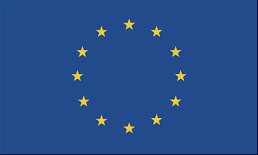EmpRep is a European Commission co-funded Action (01.04.2020 – 31.03.2022) looking into the structure, conduct and impact of Employers’ Associations on bargaining and labour market outcomes. According to Eurofound “Employers’ organisations are bodies designed to organise and advance the collective interests that employers have in the labour market. The range and content of such collective interests, as compared with an employer’s individual interests, are neither objectively given nor self-evident, but a matter of interpretation. Hence, the structure, membership basis and tasks of employers’ organisations differ widely across countries. Large companies especially are able to decide consciously on what labour market interests they wish to pursue individually by themselves, and what interests they want to have represented by employers’ organisations. An example of a notably individualistic approach is the USA, where employers’ organisations as a means of advancing employer interests are largely negligible. This contrasts with European traditions in which employers’ organisations normally have a much stronger role.” (See for further detail). Effective collective wage bargaining depends on inter alia the representativeness of the parties involved. While there is some information on the representativeness of trade unions less is known about membership, objectives and structure of employers’ associations (EAs).
This Action takes a European perspective and analyses data for the EU (using European-level data e.g. European Company Survey (Eurofound), the Labour Market Policies & Institutions database (OECD) and the ICTWSS database (AIAS)). For ten countries (Belgium, Cyprus, Denmark, France, Germany, Greece, Italy, Portugal, Spain,and the UK) the analysis will be more detailed using individual country databases, where possible, or the existing literature if not. The inclusion of a large number of countries ensures adequate coverage of different industrial relation configurations.
The focus will, however, be on 4 out of the 10 countries (France, Greece, Italy and Portugal) that share a number of features pertinent to the issues under investigation and to the social dialogue. One such feature is the prevalence of SMEs, which makes the issue of social partner representativeness more pressing. For these 4 countries detailed microdata – Quadros de Pessoal (PT), REPONSE (FR), INAPP-Ril (IT), WDN Survey (GR) – together, with new information from interviews with firms and/or members of EAs will be used. The aim is to document measures of EA representativeness, to study the determining factors of EA membership and of the impact of EAs on the effectiveness of collective bargaining and labour market performance.

This project is being funded with support from the European Commission. This site reflects the views only of the partners, and the Commission cannot be held responsible for any use which may be made of the information contained therein.
Grant Number: [VS/2020/0122]